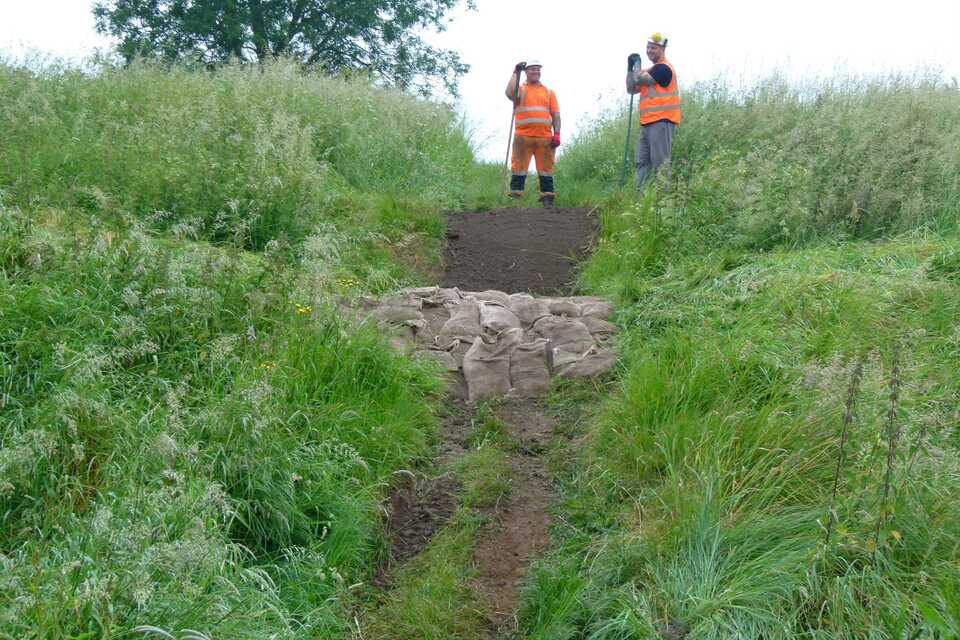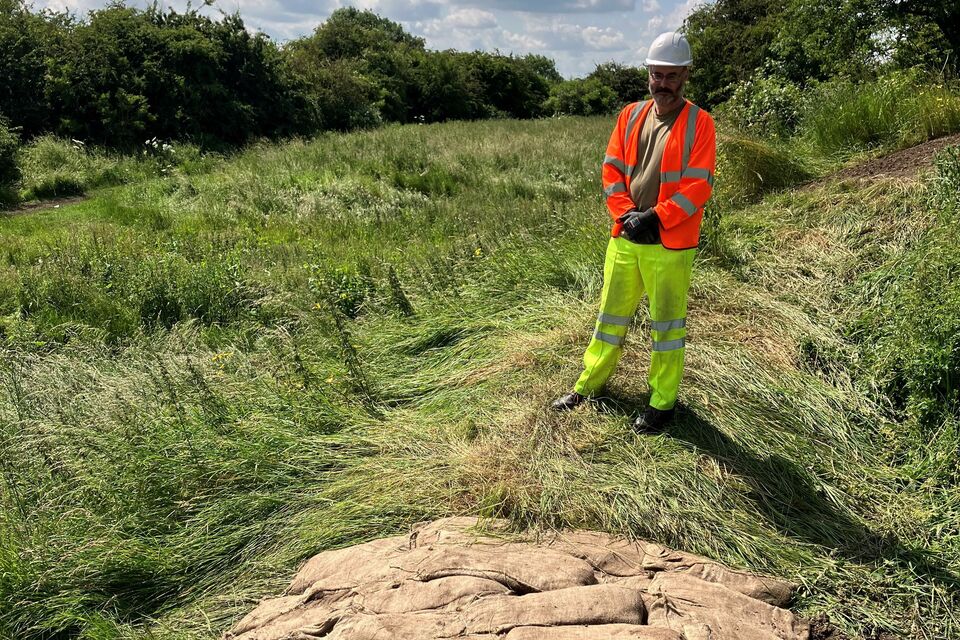Environment Agency

Contractors have started specialist work to repair damage to Swine Castle Hill (Bransholme Castle), which is protected by law as a Scheduled Monument, and is owned by East Riding of Yorkshire Council.
The damage has been caused by antisocial behaviour, illegal metal detecting and, most significantly by motorbikes being used on the site.
The repair work is being done alongside the construction of the Castlehill Aquagreen flood storage area as part of the Holderness Drain flood alleviation scheme in Hull.

Contractors repairing ruts in the castle earthworks
The flood storage project started in February 2022 and will reduce flood risk to over 870 properties and key infrastructure in east Hull. The project will create new woodland habitats, newt ponds and improved footpaths for members of the public.
Jennifer Morrison, Senior Archaeologist at the Environment Agency said:
An integral part of this flood defence project in East Hull is to raise awareness of the presence and historical importance of the castle, and to improve pedestrian access to it so it can be enjoyed by the community and preserved.
The work will aim to repair damage done to the site and look at ways damage can be prevented in future. All this is part of our wider ambition to reduce flood risk and make the area more resilient to the impacts of climate change.

Contractor at the site of the repair works
The monument at Castlehill is thought to be the Branceholme castle built by Sir John Saher before the year 1200. What can be seen on site today is the oval mound (motte), on which the castle or manor house buildings were built.
The work will aim to repair two areas of deep erosion scars caused by motorbikes running over the monument and digging to create motorbike ramps.
The programme of repair work has been approved by Historic England, which has jurisdiction for Scheduled Monuments. Hessian bags containing archaeologically sterile soil are first pinned into the rut damage. Then the ground is reprofiled to its original height with archaeologically sterile topsoil and planted with a wildflower seed mix.
Once the repairs have been completed, three steel kissing gates will be installed around the motte, which will allow pedestrians onto the monument, but will block motorcycles.
Gaps in the shrub planting will be filled with native species to control access. Two interpretation boards will be installed at the new access points onto the castle, to provide visitors with information on the history and importance of the castle, and the wildlife that may be spotted around Holderness Drain.
Scheduled Monument Consent from the Secretary of State for Digital, Culture, Media and Sport was required for the work, which will be supervised
